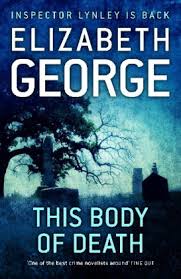A Look at Masterful Voice
I love talking about voice in fiction. I veer off from other “experts” in definition about voice. I believe that some people are referring to the writer’s style when they talk about voice.
Take a listen to what literary Donald Maass says about voice in Writing the Breakout Novel:
“I am looking for authors with a distinctive voice.” I hear that from editors over lunch almost as often as I hear, “I am looking for big, well-written thrillers.”
What the heck is “voice”? By this, do editors mean “style”? I do not think so. By voice, I think they mean not only a unique way of putting words together, but a unique sensibility, a distinctive way of looking at the world, an outlook that enriches an author’s oeuvre. They want to read an author who is like no other. An original. A standout. A voice.
How can you develop your voice? To some extent it happens all by itself. Stories come from the subconscious. What drives you to write, to some extent, are your own unresolved inner conflicts. Have you noticed your favorite authors have character types that recur? Plot turns that feel familiar? Descriptive details that you would swear you have read before (a yellow bowl, a slant of light, an inch of cigarette ash)? That is the subconscious at work.
You can facilitate voice by giving yourself the freedom to say things in your own unique way. You do not talk exactly like anyone else, right? Why should you write like everyone else?
I’ve written about this on numerous occasions, and I go deep into voice in The 12 Key Pillars of Novel Construction and 5 Editors Tackle the 12 Fatal Flaws of Fiction Writing.
I don’t mean to be contrary to other writing gurus, but I’m all for simplicity and clarity.
I believe that if you sit down and try to come up with a “writer’s voice” for your novels, you will wander off track.
Why do I say that? Because, to me, there is no such thing as a writer’s “voice.” I might write ten novels, and in each one, my “voice” might sound different. And should.
That’s because every story is different, even within the same genre.
Voice, Style, and Tone
And don’t get tone confused with style or voice. Let’s go for simple here:
Voice: Each character has one. If your book has a narrator, whether first person, limited third person, or omniscient, it’s a character voice. It’s not the “author’s” voice.
Style: The way I write—my choice of syntax, sentence structure, vocabulary, paragraph structure, phrasing. My writing style will vary in every book, unless it’s a series that deliberately continues the same writing style.
Tone: The overall mood laid over a novel. You can have a humorous tone, a dark tone, a serious tone, a sarcastic tone, a lighthearted tone—to name a few. Sometimes the tone is subtle and nearly invisible, kept in the background as character voice dominates the scenes (as it should be, in my opinion). Genre determines tone. Hence, know your genre and attune your tone accordingly.
While it’s important to experiment with your writing style and tone, as you study hard the best sellers in your niche genre in order to sell well alongside them, you need to be clear about voice and POV.
The scenes of your book have to be shown and told from someone’s point of view (POV). If you are writing in first person, one character, there will be one consistent voice throughout. That’s because you are in that character’s head and seeing everything that happens through her eyes.
So what happens with voice when you have multiple POVs? The answer should be obvious: you have multiple voices.
What I see in many (maybe most) of the novels I edit and critique is a writing style that replaces voice. That overshadows voice. That narrates scenes in lieu of voice.
This is the opposite of masterful writing. It’s usually weak and amateur writing. And often it’s because the writer is a newbie, just trying to get the knack of writing a scene, writing dialogue, figuring out how to show instead of tell. Over time, writers do get enough skill under their belt so that they can focus on developing a great writing style that fits their genre.
But even seasoned fiction writers can fall in the trap of thinking “voice” is all about them and how they are telling the story.
I think I’m passionate about this because I love characters. And the one author who excels in character voices more than any other I’ve ever read is Elizabeth George.
All her characters, great and small, have unique voices. This isn’t just about choice of words or accents or diction. The voice reveals important things like thought process, motivation, personality, and attitude. Those, to me, are the vital elements that need to come out through voice.
Let’s take a look at a couple of passages from Elizabeth George’s novels. I’ll share more in upcoming posts, but this should give you a taste of masterful voice.
When Meredith Powell awakened and saw the date on her digital alarm clock, she absorbed four facts in a matter of seconds: it was her twenty-sixth birthday; it was her day off from work; it was the day for which her mum had suggested a gran-spoils-the-only-grandchild adventure; and it was the perfect opportunity for apologizing to her best and oldest friend for a row that had kept them from being best and oldest friends for nearly a year. This last realization came about because Meredith shared her birthday with that best and oldest of friends. She and Jemima Hastings had been thick as thieves from the time they were six years old, and they’d celebrated their birthdays together from their eighth one on. Meredith knew that if she didn’t make things right with Jemima today, she probably wouldn’t ever do it, and if that happened, a tradition that she’d long held dear was going to be destroyed. She didn’t want that. Dear friends weren’t easy to come by.
The how of the apology took a little thought, which Meredith engaged in as she showered. She settled on a birthday cake. She would bake it herself, take it to Ringwood, and present it to Jemima along with her heartfelt apology and her admission of wrongdoing. What she would not include in the apology and the admission was any mention of Jemima’s partner, who’d been the source of their row in the first place. For Meredith now understood that would be pointless. One simply had to face the fact that Jemima had always been a romantic when it came to blokes, whereas she—Meredith—had the complete and utterly undeniable experience of knowing men were essentially animals in human clothing. The wanted women for sex, childbearing, and house-wiving. If they could just say that instead of pretending they were desperate for something else, women who involved themselves with them could then make an informed choice about how they wanted to live their lives instead of believing they were “in love.”
Meredith pooh-poohed the entire idea of love. Been there, done that, and Cammie Powell was the result: five years old, the light of her mother’s life, fatherless, and likely to remain that way.
George’s gift is in knowing her characters through and through. The stream of narrative is their stream of thought, and the words used paint a clear picture of the character’s thought process and personality. In these opening paragraphs with Meredith, we get her fairly quickly. There is no flat physical description, describing her hair, weight, and eye color. We are right in her head and are peeking at what concerns her in the moment.
As each character is introduced, we peek inside and learn things no one on the “outside” would hear.
David Emery considered himself one of Stoke Newington’s very few Cemetery Experts, which he always thought of in uppercase letters, David being an Uppercase sort of bloke. He’d made an understanding of Abney Park Cemetery his Life’s Work (another uppercase situation for him), and it had taken him ages of wandering and getting lost and refusing to be cowed by the general creepiness of the area before he was willing to call himself its Master. He’d been locked in more times than he could begin to count, but he’d never let the cemetery’s nightly closure impinge upon his plans while he was there. If he arrived at any of the gates and found them chained against his wishes, he didn’t bother to ring the Hackney police for rescue as the sign on the gate recommended he do. For him, it was no huge matter just to hoist himself up the railing and over the top, landing either in Stoke Newington High Street or, preferably, in the back garden of one of the terrace houses that lines the cemetery’s northeast boundary.
Making himself a Master of the Park allowed him to use its paths and crannies in any number of ways but particularly in ways amorous. He did this several times a month. He was good with the ladies—they often told him he had soulful eyes, whatever that meant—and since One Thing generally led to Another with women in David’s life, a suggestion that they take a stroll in the park was rarely refused, especially since park was such a . . . well, such an innocuous word compared to cemetery, wasn’t it.
His intention was always a shag. Indeed, taking a walk, having a stroll, or going for a bit of a wander were all euphemisms for shagging, and the ladies knew that although they pretended not to. They would always say things like, “Oooh, Dave, that place gives me the jumps, it does,” or words to that effect, but they were perfectly willing to accompany him there once he put an arm round them—going for a bit of breast with his fingers if he could—and told then they’d be safe with him.
We get a good sense of David’s character here, and no doubt you already dislike the guy. The scene moves quickly into action, with David “escorting” a woman into the cemetery, as is his method, but, to his surprise, something shocking happens.
What I see with mediocre and amateur writing is dry description of place and character and action. Usually there is nothing to indicate the three most important elements of a scene, and that’s motivation, motivation, and motivation.
Every character is motivated by something (or should be), and whatever they are doing, they’re doing for a reason. When writers craft a scene and show what the POV character is doing and don’t convey any sense of motivation, readers are lost. They want to know the why, even if it comes in small hints. They want to get the characters. And that’s because in real life, we want to get the people we deal with.
Someone approaches us and tells us about a great deal on a car. We immediately want to know why they are telling us this. What’s their motive? What do they want?
 Our characters should be driven. The more passion, the more conflicting motivation between characters, the more potential conflict, the more interesting the story.
Our characters should be driven. The more passion, the more conflicting motivation between characters, the more potential conflict, the more interesting the story.
This is just a brief look at some of the passages from George’s masterful book This Body of Death (one of my favorites of hers). It’s not that the writing in these passages is amazing or the word choice breathtaking. What’s masterful is the way every single character in her stories jump off the page with personality and motivation.
And while it’s obvious that “motives” are key in murder mysteries, I will say that they are just as important in any other genre.
Your thoughts on the passages? Have you spent time developing unique voices and motivations for all your characters?












I find that I often get “voice” and “writing style” confused. But thinking of voice more as how someone looks at the world is a helpful way to distinguish the two. Thanks for sharing it.
This is great again, Susanne! I’ve shared it online.
While I agree that Elizabeth George is an expert writer, I don’t care for her subject matter. I read What Came Before He Shot Her and didn’t like the ending. The characters were indeed alive with individuality and voice. I just like a happy, if not just satisfying, ending. All best to you.
Thanks. That novel is one of the very few of hers I did not like. I would highly recommend you read all her earlier ones, starting with A Great Deliverance. I also love Playing for the Ashes and This Body of Death. When you start at the beginning and read them in order, you get to know and love all the characters so much, so I can only say that killing off a key character was upsetting to me!